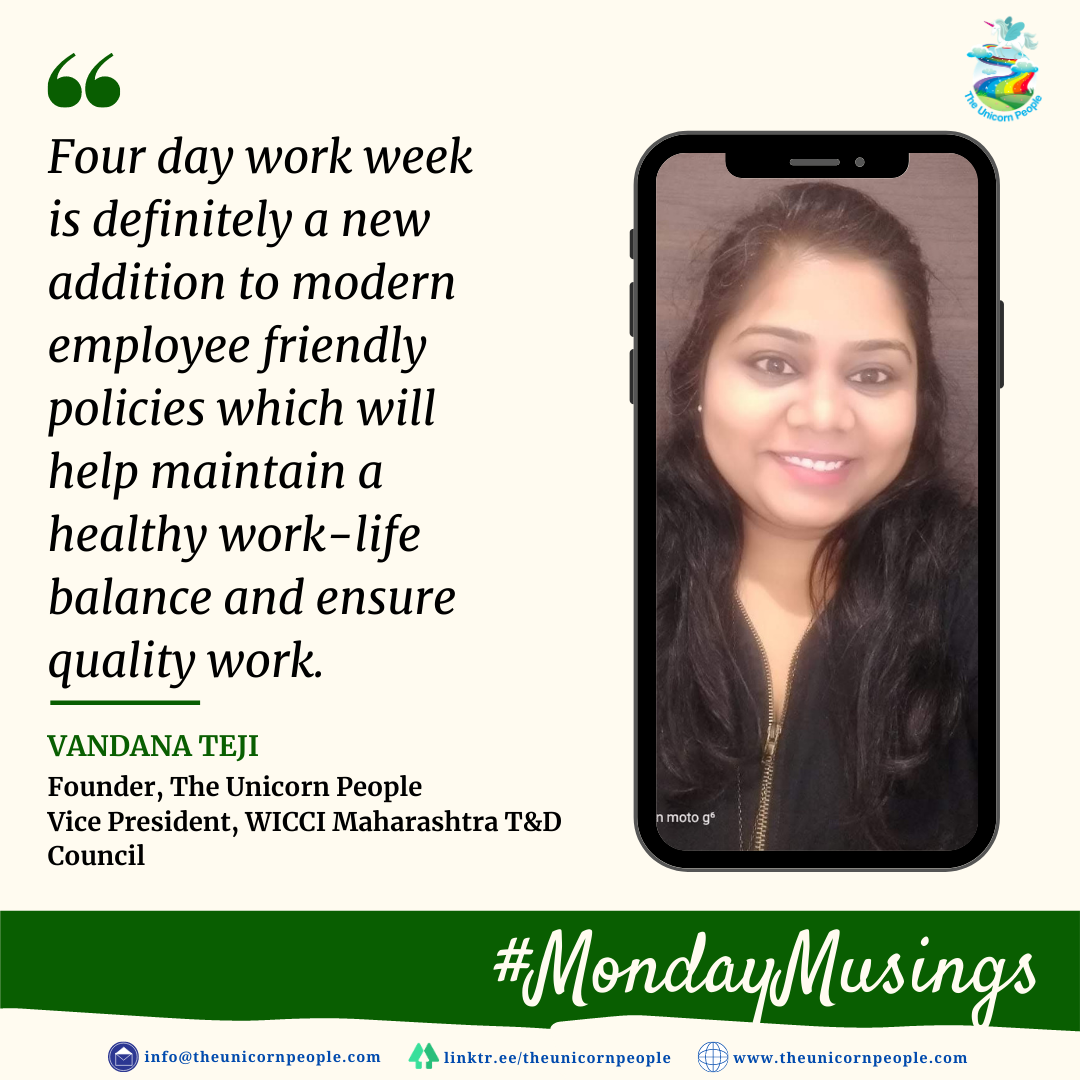
Author: Vandana Teji, Founder, The Unicorn People
Six days working is the norm in Indian set up. I have always ensured not to work for any such firm which would need me to work 6 days a week. In fact once I declined a financially lucrative offer because the company wanted me to work for 6 days. The fear of having just a day for myself has been scary ever since I sat for my first interview… guess studying in a Monday – Friday school has established Saturday and Sunday in my mind as weekends or more like “my days”. I have worked on a few Saturdays but I had to struggle to be my usual smiling self…
I am sure many people across the globe go through a similar chain of thoughts. Some give up and join six days working workforce or some get lucky and avoid this sticky situation. Usually when I participate in discussions on overtime/work day one reason which is stated in favour of 6 days work week or extended work hours is productivity.
While the world was busy arguing; the team at Microsoft has been busy with testing a four-days work week at their Japan Office.
In August 2019 Microsoft Japan, as a part of its “Work Life Choice Challenge”, closed its doors on Friday and decided to give a 3 days weekend to its 2300 employees for the entire month of August 2019.

Controls applied
Results Achieved
I am aware that the concept of 4 days work week is not a new one. In 2018 a New Zealand based firm also recorded its test on this topic but that’s New Zealand and the world works differently there.
The choice of Japan office for research was crucial. Throughout the globe Japan is known for its long working hours. For years companies have tried to either cloak it or tag it as “Employee Commitment” but the impact of long working hours is felt acutely in Japan. In 2016 a govt study showed that more than a quarter of Japanese companies needed its employees to work for more than 80 hours of overtime in a month. Japan has even coined its own term “Karoshi” which literally means death by overwork. But overwork doesn’t mean high productivity. In a comparative study of G7 nations it was deduced that Japan also has the lowest productivity.
With this I can confidently conclude that 4 days work week is definitely a new addition to modern employee friendly policies which will help to maintain a healthy work life balance and ensure quality work.